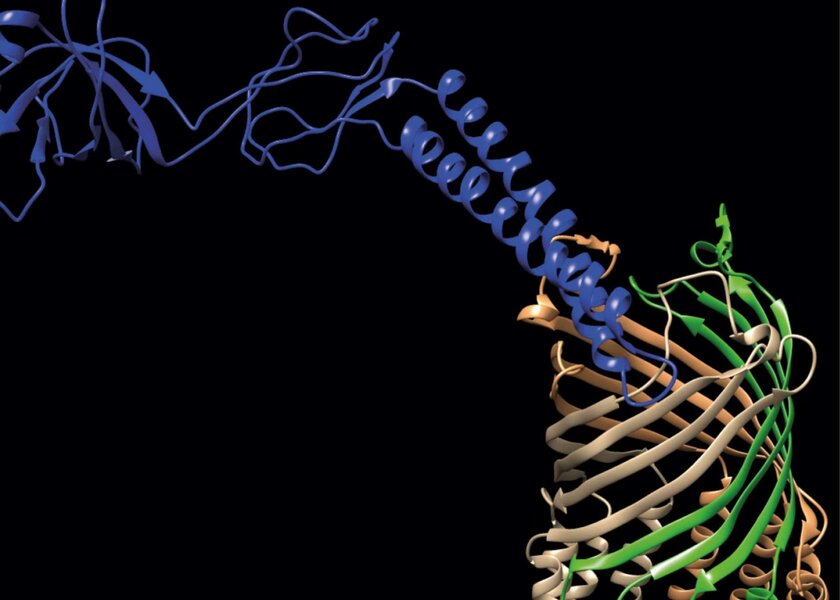Create a free profile to get unlimited access to exclusive videos, sweepstakes, and more!
Bacteria emit chemical 'death cries' to warn their bad microscopic buddies

According to a tagline from the seminal sci-fi film, Alien, "In space, no one can hear you scream." But apparently that's not quite the case in the microscopic realm where viruses and bacteria thrive.
In a chilling new discovery by scientists at the University of Texas, the team reports that bacteria release "death cries" as they perish, sending out the general alarm by giving off chemical signals that warn their invasive colleagues of impending danger. These emergency alerts aren't necessarily audible, per se, as they're distributed by swarming bacterial colonies via a process called necrosignaling, and provide extreme warnings for clusters of neighboring bacteria under dire threat.
These chemical-based signals kick in when the colony is under attack by a solid round of antibiotics. The advanced cry of the dying might be enough to allow survival and generate mutations fast enough to mutate into a more antibiotic resistant form, thus saving their up-to-no-good buddies from certain doom. It all has a rather Borg-like, hive-mind quality that ensures bacterial victory, or at least gives it one helluva fighting chance.
The University of Texas researchers, including Souvik Bhattacharyya, David M. Walker, and Rasika M. Harshey, published their findings this week in the online scientific journal, Nature Communications. Within, they describe how the sacrificial lambs aid in the survival and reproduction of the bacterial community at large, using what can be properly termed as pro-social behavior.
Billion-strong bacterial swarms occur when certain types of bacteria, like E. coli, join together and employ their whip-like flagella to navigate as one entity over solid surfaces. In the past, scientists have observed that these mega-swarms are more resistant to antibiotics and were aware that dead bacteria deliver nutrients to surviving bacteria within the swarm. But this study is the very first time an active chemical signal has been revealed.
"While this resistance is physiological, it buys the bacteria time to acquire mutations that would eventually lead to genetic resistance," said Rasika Harshey, the Lorene Morrow Kelley Professor of Microbiology at the University of Texas. "Interfering with necrosignaling should enhance the efficacy of antibiotics and reduce the occurrence of drug-resistant strains."
This life-saving periplasmic protein component known as AcrA acted like an emergency signal, letting survivors in the bacterial swarm know to start pumping the lethal antibiotic out of the cells using unique molecular machines called efflux pumps.
Antibiotic-resistant bacteria are a major obstacle in modern medicine due to the simple fact that once a bacterium becomes resistant to a variety of antibiotic medications, it becomes progressively more difficult to treat serious infections in humans and animals. Now that a single mechanism which these hardy swarms utilize to survive antibiotic contact has been unveiled, researchers can move forward in exploring ways to target and eliminate that process with specialized therapeutic drugs.
"Many clinically important bacteria go through phases of their infection cycle outside the host in harsh environments where swarming would increase their chances of acquiring antibiotic resistance through necrosignaling," Harshey added. "With better understanding of this process we may be able to halt it."




























